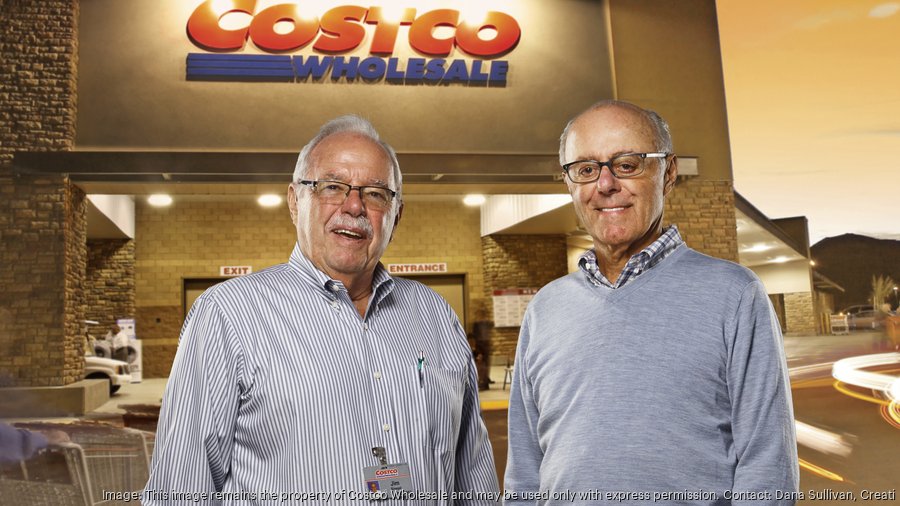For those seeking a treasure trove of bulk bargains and brand-name bounty, Costco reigns supreme. This member-only warehouse club, with its cavernous stores and towering shelves, has become a retail phenomenon. But Costco is more than just deep discounts on mega-packs of toilet paper and mountains of laundry detergent. It’s a carefully curated shopping experience that offers a unique blend of quality, value, and surprise.
Costco’s story stretches back to 1976, when the concept of the membership warehouse club was still a fledgling idea. Sol Price, a retail innovator, opened the first Price Club in San Diego, California. This warehouse offered deep discounts on bulk quantities of merchandise, primarily targeting small businesses. Recognizing the potential for further growth, Costco, co-founded by Jeffrey Brotman and James Sinegal, opened its doors in Seattle in 1983. Through a strategic decision to expand membership to individuals alongside businesses, Costco revolutionized the way people shopped.

Today, Costco boasts a global presence with hundreds of locations worldwide. The warehouse club model thrives on a simple yet effective principle: bulk buying power translates to significant savings for members. By purchasing merchandise in vast quantities, Costco negotiates lower prices from brand-name manufacturers, passing those savings directly to its members. This win-win approach allows customers to access top-quality products at competitive prices, while manufacturers benefit from the increased sales volume.
But Costco’s appeal extends far beyond rock-bottom prices. The warehouse itself is an experience. Stepping through the entrance is like entering a retail wonderland. High ceilings and expansive aisles create a sense of adventure, with towering displays showcasing everything from electronics and clothing to furniture and housewares. Each visit holds the potential to unearth hidden gems, from seasonal delicacies to luxury items at unbelievable discounts. Costco strategically employs a treasure-hunt mentality, with a constantly rotating selection of products that keeps customers coming back for more.
Furthermore, Costco goes beyond just bulk groceries. The company boasts a wide array of specialty departments, including a bakery churning out fresh bread and pastries daily, a meat department renowned for its high-quality cuts, and an optical center offering competitive prices on eye exams and eyeglasses. Members can also take advantage of a suite of additional services, including travel booking, pharmacy services, and car rentals – all at exclusive member prices.
Costco’s success hinges on a carefully cultivated relationship with its members. The annual membership fee acts as a commitment, fostering a sense of loyalty and community amongst its customer base. This loyalty is further fueled by Costco’s legendary customer service, consistently rated among the best in retail. The company prioritizes employee satisfaction, leading to a well-trained and helpful staff who contribute to the positive shopping experience.
Whether you’re a seasoned Costco shopper or a curious newcomer, there’s no denying the allure of this retail giant. From its treasure trove of bulk bargains to its ever-evolving product selection and commitment to member value, Costco has cemented its place as a unique and thriving entity in the retail landscape.
Top Competitors and Alternatives of Costco
Costco faces competition from various companies across different segments of the retail industry. Here’s a breakdown of some of its top competitors:
1. Walmart

Website – https://www.walmart.com/
While Costco may seem to occupy a niche of its own, it faces competition from retail giant Walmart. Both companies vie for dominance in the realm of low prices and a wide variety of products. Walmart, with its massive physical footprint and presence in almost every corner of the United States, offers a strong alternative to Costco’s membership-based warehouse model.
Walmart can leverage its sheer size to negotiate competitive prices with suppliers. This allows them to offer everyday essentials and national brands at attractive price points, potentially undercutting some of Costco’s bulk deals, particularly for non-members. Additionally, Walmart’s vast network of stores provides a level of convenience unmatched by Costco. Customers can easily pop into their local Walmart for a quick errand, whereas Costco locations are typically fewer and farther between.
However, the competition goes beyond just price and convenience. While Costco excels in bulk and specialty items, Walmart offers a wider selection of general merchandise, including clothing, home goods, and electronics. This allows them to cater to a broader range of customer needs, potentially capturing shoppers who aren’t interested in the Costco membership model or bulk buying.
2. Amazon
Website – https://www.amazon.com/
While Costco reigns supreme in the warehouse club arena, online retail behemoth Amazon presents a significant challenge. Both companies compete for customer dollars across a vast array of product categories, leveraging different strengths to attract shoppers.
Amazon’s dominance lies in its unparalleled convenience and selection. Customers can browse millions of products from the comfort of their couch, with fast and often free delivery options. This ease of access makes Amazon a go-to choice for impulse purchases, specific needs, and items not readily available at Costco. Additionally, Amazon Prime memberships offer a host of benefits beyond just shopping, including streaming services and exclusive deals, further enticing customers into their ecosystem.
However, the battleground isn’t solely focused on convenience. Amazon recognizes the value proposition of bulk discounts and has been steadily expanding its offerings in this area. Through its Amazon Pantry and Subscribe & Save programs, Amazon caters to shoppers seeking deals on household staples and everyday essentials, potentially undercutting the allure of Costco memberships for those seeking specific bulk items. While the selection may not be as curated as Costco’s, Amazon’s vast reach and ability to personalize product recommendations make it a formidable competitor.
3. Sam’s Club
Website – https://www.samsclub.com/
Costco’s closest competitor might surprise some: Sam’s Club, owned by retail giant Walmart. Both operate under the warehouse club model, offering similar experiences with bulk discounts, exclusive brands, and a treasure-hunt atmosphere. This head-to-head competition compels both companies to constantly innovate and refine their strategies to win over customer loyalty.
The battleground boils down to a war of value and strategy. Sam’s Club often boasts slightly lower membership fees compared to Costco. Additionally, they tend to carry a larger selection of national brands alongside their store brand, Member’s Mark. This can appeal to shoppers who prioritize familiar names over the discovery-driven approach favored by Costco with its Kirkland Signature brand. However, Costco counters with a reputation for higher-quality products and a more loyal customer following who swear by their private label offerings.
Beyond price and brands, both clubs fight for customer favor through additional perks and services. Sam’s Club emphasizes convenience by offering curbside pickup and wider acceptance of payment methods, including Discover cards. Costco, on the other hand, focuses on building a strong member community through exclusive events, travel deals, and a well-regarded pharmacy benefit program. Ultimately, the choice between Costco and Sam’s Club boils down to individual shopping habits and priorities.
4. Target
Website – https://www.target.com/
While Costco and Target occupy distinct retail spaces, they do go head-to-head for a share of consumer spending in some key areas. Both cater to a value-conscious audience seeking a blend of quality products and attractive prices, albeit through different approaches.
Target’s strength lies in its curated selection of national brands and its own private label lines. This focus on variety allows them to cater to a broader range of shopping needs, from groceries and homewares to clothing and electronics. Target excels at offering trendy items and seasonal finds, attracting customers who might not be interested in the bulk quantities or membership fee associated with Costco. Additionally, Target’s smaller store format and strategically placed locations often provide a more convenient shopping experience for quick errands or browsing trips.
However, the competition extends beyond just convenience and product selection. Target leverages its brand reputation for style and design to create a more aesthetically pleasing shopping experience compared to the industrial warehouse feel of Costco. This can be particularly appealing to shoppers who prioritize a curated and visually stimulating shopping environment. Furthermore, Target’s loyalty programs and frequent sales events can offer significant savings on everyday essentials, potentially swaying customers away from Costco memberships for specific needs.
5. BJ’s Wholesale Club
Website – https://www.bjs.com/
In the realm of warehouse clubs, BJ’s Wholesale Club stands as a strong competitor to Costco. Both companies offer memberships granting access to bulk discounts, exclusive brands, and a treasure trove of discounted merchandise. This head-to-head competition drives both clubs to innovate and refine their strategies to attract and retain customers.
One key differentiator between the two is their geographic reach. BJ’s boasts a concentrated presence on the East Coast of the United States, while Costco has a wider national footprint. This can be a significant factor for those seeking a warehouse club closer to home. However, BJ’s compensates for its smaller footprint with a focus on grocery items. They offer a wider selection of fresh produce, dairy, and deli products compared to Costco, potentially appealing to customers who prioritize stocking up on weekly essentials. Additionally, BJ’s tends to carry more national brands alongside their private label offerings, catering to shoppers who might prefer familiar names over the discovery-driven approach favored by Costco.
The battle for customer loyalty extends beyond product selection and location. BJ’s membership fees are typically lower than Costco’s. They also place an emphasis on convenience by offering same-day delivery options and curbside pickup services that Costco currently lacks. However, Costco counters with a reputation for higher-quality private label products and a more established member community known for its fierce loyalty. Ultimately, the choice between BJ’s and Costco boils down to individual shopping habits, geographic location, and whether bulk groceries or a wider product selection takes priority.
6. Kroger
Website – https://www.kroger.com/
While Costco reigns supreme in the warehouse club arena, traditional grocery giant Kroger emerges as a surprising competitor for a specific segment of shoppers. Both Kroger and Costco vie for customer loyalty by offering value on groceries and household essentials, but they cater to different needs and shopping styles.
Kroger’s strength lies in its vast network of supermarkets. This widespread presence offers unmatched convenience compared to Costco’s limited warehouse club locations. Customers can easily find a Kroger store nearby for quick grocery trips or last-minute needs, avoiding the bulk quantities and membership fees associated with Costco. Additionally, Kroger excels in fresh food selection. Their focus on perishables like produce, meat, and bakery items allows them to cater to shoppers who prioritize quality and variety over the long-term storage focus of Costco’s bulk offerings.
However, the battleground extends beyond just convenience and fresh food. Kroger leverages its loyalty programs and frequent promotions to offer competitive prices on everyday essentials. This can be particularly appealing to budget-conscious shoppers who aren’t interested in the bulk quantities or membership fees required for Costco. Furthermore, Kroger’s wider selection of national brands allows customers to find familiar favorites, whereas Costco prioritizes its own private label brands alongside a more limited range of national products. Ultimately, the choice between Kroger and Costco boils down to individual shopping habits and priorities. Costco caters to those who prioritize bulk discounts and are comfortable with a membership model, whereas Kroger shines for those seeking convenience, fresh food selection, and familiarity with national brands.
Each of these competitors has its strengths and weaknesses, but Costco maintains its position by focusing on its unique value proposition of offering high-quality products in bulk at low prices, coupled with excellent customer service and a membership-based business model.
Also Read: Costco Wholesale: Success Factors and Marketing Strategies
To read more content like this, subscribe to our newsletter
Go to the full page to view and submit the form.


